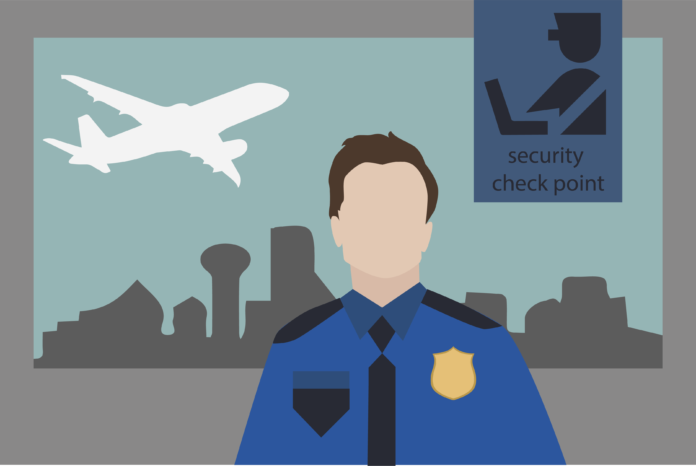At what point does the cost outweigh the now-marginal benefits of security theater?
Airports are often the worst part of every trip, and security theater shoulders much of the blame. Security theater is the idea that some security processes exist purely to make people feel safer, even though the process has little effect on the person’s safety. However, has the security theater gone too far in airports? Is the psychological benefit gained by some worth the rigamarole of all of us just to get to our gates? While this may be a touchy topic, security theater is something we need to be thinking about.
Transportation Security Administration (TSA), the group that runs airport security, has been becoming more and more stringent with security ever since its creation following the tragedy of 9/11, which happened 20 years ago. It has been adding more security measures and while we haven’t had another massive tragedy (thankfully) on the scale of 9/11, it feels like security is starting to bother normal passengers more than catch terrorists. Sometimes getting through TSA takes even longer than a short flight, which can irk even the most considerate of passengers.
If measures that were more style over substance could be reduced, everyone would benefit. The difficulty in this is being able to distinguish what processes are best for providing actual security so that we can keep safe while being able to strip out the processes that offer little-to-no security benefit.
TSA PreCheck, which allows travelers to pay their way out of regular TSA screening, represents how little some of the steps in regular screening must actually matter. If taking your shoes off in a dirty airport, watching your lotion bottles like your life depends on them, having to dig through your bag to remove all the technology or removing your belt wears you down as a person, just get PreCheck. Instant immunity from all the worst parts of going through security — it’s that easy! All PreCheck members are allowed to ignore the “security” risks of not removing shoes and belts and not taking out liquids and electronics.
One would assume that they offset this risk by having an extensive vetting process to make sure only truly trusted individuals can indulge in this first-class experience, right? Well, there are three steps anyone can follow to get the green check: fill out an application, have a 10-minute in-person background check and pay $85. Sorry if I have a pessimistic outlook here, but I assume people looking to cause harm would be willing to pay $85 and try to pass a background check if that makes it easier for them to get through security. For something like TSA PreCheck to be so easy to get, the skippable security measures must not be as vital as we were made to believe. That’s security theater in a nutshell. All of that rigamarole provides the illusion of safety but barely makes you any safer, while the important steps are the full-body scanners and the X-ray of bags.
This is without even mentioning the rampant racial profiling and corruption that seems to be ingrained in our TSA security system. Former TSA agent Jason Harrington told The Atlantic that those “random” people they pull aside for pat-downs and further checks skew more toward people with Middle-Eastern features. I understand and agree that we need physical security to go along with the X-rays and body scans to ensure safety, but there must be a smarter way to go about it.
There are also economic implications of the TSA choke point. The cost of running TSA back in 2016 was astronomical, and it’s only getting larger. The Behavior Detection Officers who are supposed to identify people to get extra checks cost over 1 billion dollars in 2016, subjecting 100,000 people to deeper checks over four months. Furthermore, during a 2013 Congressional hearing relating to the Behavior Detection Officer program, Congressmen Richard Hudson and Jeff Duncan both recounted that the TSA has been unable to prove that the program has succeeded in catching a single terrorist. The New York Times reported that at Logan International Airport in Boston in 2012, officers trained in the behavior detection program were encouraged to make arrests, leading to rampant racial profiling. In 2017, the ACLU obtained TSA documents contradicting the efficacy of some of its own behavior detection techniques and recording instances of alleged racial profiling by officers.
Behavior Detection Officers aren’t the only costly yet ineffective TSA program. A 2015 Homeland Security report writes that the 70 billion dollar TSA program failed to catch 95% of test bombs or weapons that undercover agents brought through security.
Security for our airlines is an incredibly important job, as it keeps us all safe when we’re 30,000 feet up in the sky, and some well-needed reform could benefit travelers in the U.S. We could improve our security time, money and safety-wise by reducing security theater and ensuring that all safety steps are necessary and effective. The best time to challenge the current norms and figure out a solution that’s better for everyone is now, so what are we waiting for?
Written by: Alex Motawi — almotawi@ucdavis.edu
Disclaimer: The views and opinions expressed by individual columnists belong to the columnists alone and do not necessarily indicate the views and opinions held by The California Aggie.




